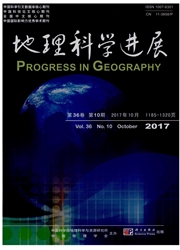

 中文摘要:
中文摘要:
随着水资源以及水环境健康的恶化,河湖水系连通性作为河流健康以及提高水资源利用的一个重要指标在国家"十二五"战略规划中被着重提出。目前,中国对河湖水系连通特征及其对河流健康的影响缺乏足够的认识,本文主要对河湖水系连通的定义、分类、评判指标、影响因素及其对水环境健康的影响进行了一一阐述。分析表明:维持水系连通可以明显地改善湿地生态环境,维持湿地生态环境及生物多样性,保障防洪安全和水资源可持续利用。同时,河湖连通也会带来对生态环境的负面影响,主要包括:①原本水质好的河流和水质相对较差河流连通后降低原来河流的水质;②加剧连通河流中物种及鱼类等生命体的竞争;③水量充沛的河流支援水量不足的湖泊,将减少该河流的有效可利用水量;④导致水面蒸发量减少影响地表及陆地的水循环,影响地区的气候变化;⑤上游地区与下游地区河湖连通将导致下游地区河湖泥沙及淤积量急剧增加。
 英文摘要:
英文摘要:
As there is a trend of deterioration of the water resource and environmental quality in China,the interconnected rivers system,which is an important target for river health and enhancing water resource utilization,was emphasized by National 12th Five-year Plan(2011-2015).Currently,we are lack of knowledge in characteristics on drainage connectivity and river health.Thus,the aim of this paper is to clarify the definition of interconnected rivers system,classification,evaluation indicators,impact factors and the effects on water environment health.The interconnected rivers system can improve wetland ecological environment,maintain biodiversity,and safeguard flood control security and sustainable utilization of water resources.However,interconnected rivers system has eclogical and environmental adventure,including:(1) because of interconnected rivers,the water quality,wherein original river is good,will be worse due to mixing with poor water quality;(2) interconnected rivers will increase the competition of fish and other species in the rivers;(3) through interconnected rivers system,the rivers and lakes which have plenty of rainwater supplement those lack of rainwater,which will greatly reduce the effective water resource;(4) reducing runoff from the rivers and lakes which are plenty of rainwater will result in reducing evaporation in the area of the land surface and the water cycle,and then,lead to climate change in the region;(5) the connectivity of upstream and downstream will result in dramatic increase in sand and sediment in downstream rivers.
 同期刊论文项目
同期刊论文项目
 同项目期刊论文
同项目期刊论文
 期刊信息
期刊信息
